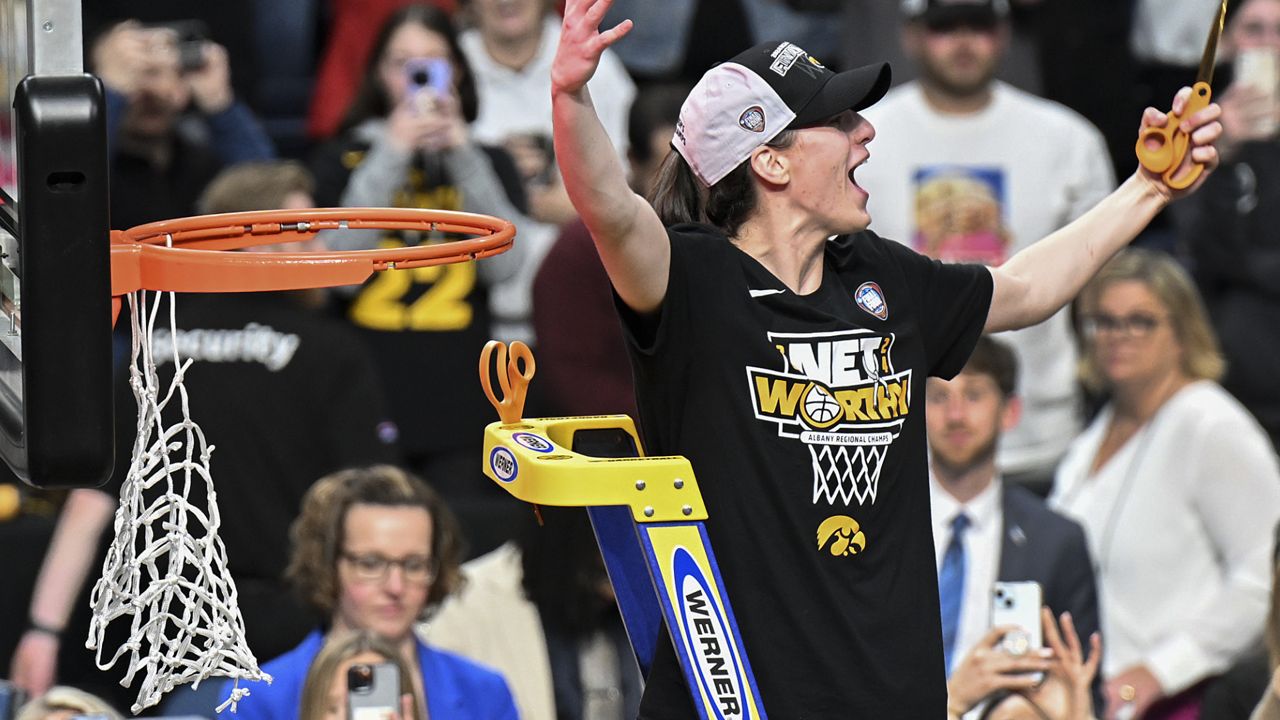CLEVELAND — Women's basketball has grown in popularity over the past few years thanks in no small part to the sensational play of Caitlin Clark.
She’s become a household name that’s brought millions of new fans to the sport. But it's not just her. There's a slew of ultratalented players like Angel Reese, Juju Watkins and Paige Bueckers that are garnering attention.
Ticket demand, attendance, media coverage and television ratings have all blown up over the past few years ever since the COVID-19 season was played in the bubble.
While those numbers aren’t equal to the men’s NCAA Tournament, the gap has closed a lot.
“I’ve said it before that it’s been intentional to hold women’s basketball back. It’s no longer intentional anymore because they see we’re bursting at the seams,” South Carolina coach Dawn Staley said. “We just want to be treated as a sport. We just want an opportunity to be seen, and I do feel like there has been — it’s been very intentional to put us on TV.”
The ratings for the first four rounds of the tournament have skyrocketed, including a record-breaking 12.3 million who tuned in for the Iowa-LSU game in the Elite Eight on Monday.
“It’s great. I think there’s great players on the men’s and women’s side," Purdue center Zach Edey said. "The fact that they’re kind of getting that coverage and exposure is long overdue. They have a lot of really good players.”
Edey is one of the rare men's stars who stuck around for four years. Usually the best men's college players jump to the pros after one season. The women greats stick around for four years helping fans know who they are.
“You’re able to build, like a real iconic legacy at a program,” NBA superstar LeBron James said. “That’s what we all love about it.”
There have always been great stars on the women's side like Diana Taurasi, Candace Parker and Brittney Griner. They just didn't get the attention that players today do.
“There's just more media coverage now which helps immensely from a brand perspective,” said Sara Gotfredson, who founded the Trailblazing Group, a Los Angeles marketing firm that specializes in commercial partnerships in women’s sports. “That's helping. When a men's player does some fantastic thing it gets covered on talk radio and SportsCenter. You're seeing that now on the women's side and it becomes water cooler conversation.”
UConn coach Geno Auriemma agreed that more coverage has helped the sport grow. His team for the past three decades has been the most covered and most well known program in the country. Now he sees a lot more schools and players get coverage.
“There was this point where people were, you know, dying for some other story line to appear. And there probably were some story lines but nobody really wanted to pay attention,” he said. “There weren’t enough people that they could look into what all the other story lines were. But now there’s way more opportunities for story lines. There’s more outlets for story lines.”
One area of growth that isn't talked about a lot is the changes to the game itself made in 2015, according to women’s basketball analyst LaChina Robinson. Playing four quarters, advancing the ball in the last minute of the contest. The men still play two 20-minute halves and don't allow the ball to advance at the end.
“Things like that have created a lot of opportunity within the game for excitement," she said. “There are more highlights and more exciting plays.”
Women’s sports has been riding a wave of popularity that stretches far beyond basketball. The perennially popular U.S. women’s soccer team, the growth of women’s professional soccer and hockey, the wild popularity of volleyball and college softball and simply more exposure on TV — has all laid a foundation for fans to find what they want to see. And what they see is high-level play and star athletes.
“I can’t say that it’s bigger than the men’s side but it’s awesome for the women’s game,” said ACC Network analyst Luke Hancock, who was the Most Outstanding Player of the 2013 Final Four when he played for Louisville. “I’ve been locked in on more women’s games than I probably have ever before.”



